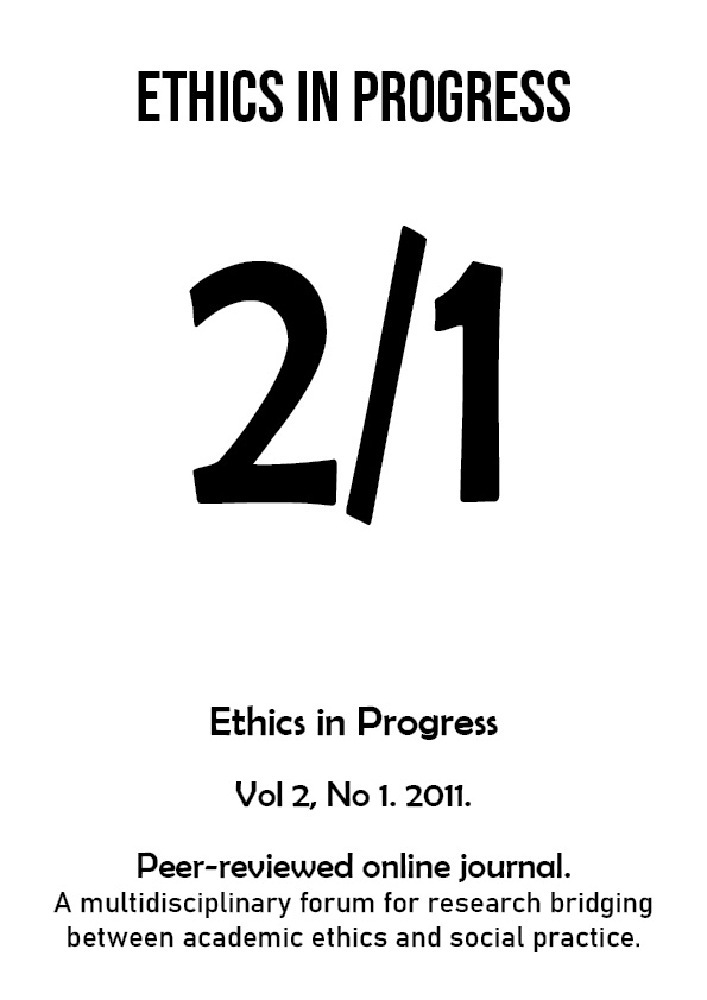Abstract
It is a pleasure to be able to thank the editors of Ethik und Sozialwissenschaften for inviting me to write this paper about the Philosophy for Children program, with which I have been associated since it began at the end of the 1960'sReferences
Bandura, A. (1986). Social Foundations of Thought and Action: A Social Cognitive Theory. Engle-wood Cliffs, NJ: PrenticeHall.
Bratman, M. (1987). Intentions, plans, and practical reason. Cambridge: Cambridge University Press.
Brown, H. I. (1988). Rationality. New York: Routledge.
Bruner, J. S., Connolly, K., eds. (1974). The Growth of Competence. London: Academic Press.
Bruner, J. S. (1990). Actual minds, possible worlds. Cambridge, MA: Harvard University Press.
Buchler, J. (1951). Towards a General Theory of Human Judgment. New York: Columbia Univer-sity Press.
Christensen, C. R., Garvin, D. A., & Sweet, A., eds. (1991). Education for judgment: the artistry of discussion leadership. Boston, MA: Harvard Business School Press.
Coles, R. (1990). The inner life of children: the spiritual life of chilrdren. Boston: Houghton Mifflin.
Coles, R. (1958). Nature and Judgment. New York: Columbia University Press.
Dearden, R. F. (1983). Autonomy and Intellectual Education, Early Child Development and Care, Vol. 12, 3-4, 211-228.
Dewey, J. (1933). How We Think. New York: D. C. Heath.
Dewey, J. (1938). Logic: the Theory of Inquiry. New York: Henry Holt
Dewey, J. (1934). Art as Experience. New York: Minton, Balch & Co.
Dewey, J. (1961). Democracy and Education. New York: Macmillan.
Egan, K. (1988). Teaching as story-telling: an alternative approach to teaching and the curriculum. London: Routledge.
Frankfurt, H. (1993). On the necessity of ideals, in: Gil G. Noam and Thomas E. Wren (eds.). The moral self. Cambridge, MA: The MIT Press. 16-27.
Freese, H.-L. (1989) Kinder sind Philosophen. Berlin: Q Verlag.
Gewirth, A. (1983). The Rationality of Reasonableness. Synthese, 57, 225-247.
Habermas, J. (1973). Legitimation Crisis. Boston: Beacon Press.
Habermas, J. (1984). The Theory of Communicative Action. Boston: Beacon Press.
Hare, W. (1985). In defense of open-mindedness. Montreal, Canada 003: McGill-Queen?s Univer-sity Press.
Harré, R. (1966). The formal analysis of concepts, in: H. J. Klausmeier and C. W. Harris (eds.). Analysis of concept learning. New York: Academic Press. 3-17.
Horster, D. (1991). Auf den Spuren Sokrates. Hannover: Universität Hannover, Verwaltung des FB Erziehungswiss. I.
Horster, D. (1993). Philosophieren mit Kindern. Ethik und Sozialwissenschaften, Vol. 4, 379-388. Critique: Vol. 4, 388-431. Reply: Vol. 4, 431-438.
Husserl, E. (1973). Experience and Judgment: Investigations in a Geneology of Logic. Evanston, IN: Northwestern University Press.
Johnson, M. (1987). The Body in the Mind: The Bodily Basis of Meaning, Imagination and Reason. Chicago: University of Chicago Press.
Kuhn, T (1977). Objectivity, Value Judgment and Theory Choice, in: The Essential Tension. Chicago: University of Chicago Press, 320-339.
Link, F. R., ed. (1985). Essays on the intellect. Alexandria, VA: ASCD.
Lipman, M. (1991). Thinking in Education. New York: Cambridge University Press.
Lipman, M. (1988). Philosophy Goes to School. Philadelphia: Temple University Press.
Lipman, M. (1974). Harry Stottlemeier?s Discovery. Upper Montclair, NJ: IAPC.
Lipman, M., Sharp, A. M., & Oscanyan, F. S. (1980). Philosophy in the Classroom, 2nd ed., Philadelphia: Temple University Press.
Lowenfeld, V. (1959). The Nature of Creative Activity. London: Routledge and Kegan Paul.
Martens, E. (1990). Sich im Denken Orientieren: Philosophiche Anfangschritte mit Kindern. Hannover: Schroedel.
Matthews, G. B. (1980). Philosophy and the Young Child. Cambridge, MA: Harvard University Press.
Matthews, G. B. (1984). Dialogues with Children. Cambridge, MA: Harvard University Press.
Matthews, G. B. (1994). The philosophy of childhood. Cambridge, MA: Harvard University Press.
McGee, M. C. (1998). Phronesis in the Gadamer versus Habermas debates, in: John M. Sloop and James P. McDaniel (eds.). Judgment calls: rhetoric, politics, and indeterminacy. Boulder, CO: Westview Press.
Munz, L., Löwenfeld, V. (1934). Plastische Arbeiten Blinder. Brünn: Rohrer. Newton, A. Z. (1995). Narrative ethics. Cambridge, MA: Harvard University Press
Nickerson, R. S., Perkins, D. N., & Smith E. S., eds. (1985). The teaching of thinking. Hillsdale, NJ: Lawrence Erlbaum Associates.
Nussbaum, M. C. (1990). Love?s knowledge: essays on philosophy and literature. New York: Oxford University Press.
Passmore, J. (1980). On teaching to be critical, in: J. Passmore, The philosophy of teaching. Cambridge, MA: Harvard University Press.
Philosophieren mit Kindern (1991). Special issue, Zeitschrift für Didaktik der Philosophie, Heft 1/91. Hannover: Schroedel.
Piaget, J. (1977). The Development of Thought: Equilibration of Cognitive Structures. New York: Viking Press.
Resnick, L. B. (1987). Education and Learning to Think. Washington, D.C.: National Academy.
Rorty, R. (1989). Contingency, irony and solidarity. Cambridge: Cambridge University Press.
Rorty, R., Oksenberg, A. (1993). What it takes to be good, in: Gil G. Noam and Thomas E. Wren (eds.). The moral self. Cambridge, MA: The MIT Press. 28-55.
Ryle, G. (1979). Thinking and self-teaching. Thinking: The Journal of Philosophy for Children. Vol. I, Nos. 3-4. 18-23.
Scheffler, I. (1989). Reason and teaching. Indianapolis, IN: Hackett Publishing Co.
Schilder, P. (1950). The Image and Appearance of the Human Body. New York: International Universities Press.
Segal, J. W., Chipman, S. F., & Glaser, R., eds. (1985). Thinking and Learning Skills, Vol. 1, Relating Instruction to Research. Hillsdale, NJ: Lawrence Erlbaum Associates.
Siegel, H. (1988). Educating reason: rationality, critical thinking and education. New York: Routledge.
Solomon, R. C. (1976). The passions: the myth and nature of human emotion. Notre Dame, IN: University of Notre Dame Press.
Steward, H. (1997). The Ontology of Mind. Oxford: Clarendon Press.
Vygotsky, L. (1962). Thought and Language. Edited and translated by Eugenia Hanfman and Gertrude Vakar. Cambridge, MA: MIT




